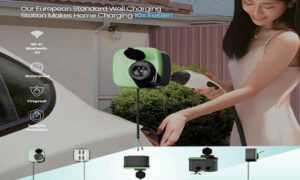In Britain, as enforcement of its online safety regime intensifies, tech companies must begin implementing safeguards to protect users from images of child sexual abuse and other illicit information on Monday.
TakeAway Points:
- Tech companies must start putting in place measures to protect users from child sexual abuse images and other illegal content in Britain from Monday as enforcement of its online safety regime ramps up.
- On Monday, BYD declared for the first time that it will establish a charging network throughout China and introduced a new platform for electric vehicles (EVs) that it said could charge EVs as fast as it takes to pump gas.
Tech firms must start protecting UK users from illegal content
Media regulator Ofcom said Meta’s Facebook, ByteDance’s TikTok, Alphabet’s YouTube and other companies must now implement measures such as better moderation, easier reporting and built-in safety tests to tackle criminal activity and make their platforms safer by design.
“Platforms must now act quickly to come into compliance with their legal duties, and our codes are designed to help them do that,” Ofcom’s enforcement director Suzanne Cater said.
The Online Safety Act, which became law in 2023, sets tougher standards for platforms, with an emphasis on child protection and the removal of illegal content.
In December, Ofcom published its first codes of practice for the new law and set companies a deadline of March 16 to assess the risks illegal content posed to users on their platforms.
The regulator will be able to issue fines of up to 18 million pounds ($23.31 million) or 10% of a company’s annual global turnover, if they fail to comply with the law.
Ofcom said file-sharing and file-storage services were particularly vulnerable to being used for sharing child sexual abuse material.
It launched a separate enforcement programme on Monday to assess the safety measures these services had in place to prevent the spread of such content.
The media regulator said it requested a number of firms that offer file-storage services to share their risk assessments by March 31. Should they not comply with these rules, they could face the same penalties.
BYD unveils new super-charging EV tech
BYD on Monday unveiled a new platform for electric vehicles (EVs) that it said could charge EVs as quickly as it takes to pump gas and announced for the first time that it would build a charging network across China.
The so-called “super e-platform” will be capable of peak charging speeds of 1,000kW enabling cars that use it to travel 400 km (249 miles) on a 5-minute charge, founder Wang Chuanfu said at an event livestreamed from the company’s Shenzhen headquarters.
Charging speeds of 1,000 kW would be twice as fast as Tesla’s superchargers whose latest version offers up to 500kW charging speeds. Fast-charging technology has been key to increasing EV adoption as it is seen to help assure EV drivers’ concerns over being able to charge their cars quickly.
“In order to completely solve our users’charging anxiety, we have been pursuing a goal to make the charging time of electric vehicles as short as the refuelling time of petrol vehicles,” Wang said.
“This is the first time in the industry that the unit of megawatt (charge) has been achieved on charging power,” he said.
The new charging architecture will be initially available in two new EVs – Han L sedan and Tang L SUV priced from 270,000 yuan ($37,328.91) and BYD said it would build over 4,000 ultra-fast charging piles, or units, across China to match the new platform.
The company didn’t specify the time frame or how much it would invest in building such facilities. To date, BYD owners have largely relied on other automakers’ charging facilities or public charging poles run by third-party operators to charge their vehicles.
Tesla has offered its superchargers in China since 2014 and BYD’s smaller Chinese peers such as Nio, Li Auto, Xpeng and Zeekr have also been investing extensively and building charging facilities for years.
BYD mostly relies on plug-in hybrids for its sales, which hit 4.2 million units last year. It has targeted selling 5-6 million units this year.



































